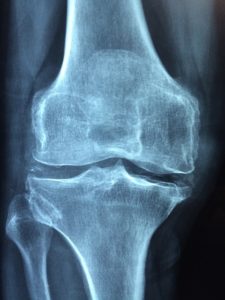
The U.S. Department of Labor Statistics in 2015, showed that nearly 100,000 workers comp claims were based on knee injuries.
As a Rogers, Arkansas workers’ compensation lawyer knows from experience handling these claims, knee injuries are not only painful but usually quite expensive due to the need for surgery.
Workers compensation benefits are important for employees
The key purpose of workers compensation benefits is to compensate employees for injuries they suffer while at work or performing a job-related activity, without needing to prove who was at fault for the injury. In exchange for these benefits, the employees who are covered under the law agree not to file a lawsuit against their employer relating to those injuries. As useful as these benefits can be, if making a workers compensation claim lead to retaliation by your employer, the benefits may not seem worth the risk. Your Rogers workers comp lawyer can help you if that does happen.
Knee injuries are very common
In addition to being one of the most common workers comp claims, knee injuries are also very common in general. According to a 2010 report, there were approximately 10.4 million doctors’ visits for knee injuries such as sprains, ligament tears, fractures, and dislocations. As the knee is a complex anatomical structure, many of the common injuries include fractures, dislocations, ACL injuries, and meniscal tears.
Specific types of knee injuries that occur
Knee fractures are typically caused by traumas, such as a slip and fall, which results in a break of the patella. Because the largest joint in the body is the knee, dislocation of that joint is very common, as well. The knee joint is subjected to a great amount of force. The ACL or anterior cruciate ligament is the ligament that runs along the inside of the knee. The ACL is most often injured when a person quickly changes direction. The meniscus, on the other hand, is composed of two wedge-shaped sections of cartilage that serve as shock absorbers between the tibia and femur. Meniscus tears are usually caused when a worker twists or pivots on their knee.
Many knee injuries require surgery
Knee injuries are not only painful but they usually require surgery in order to repair the injury and restore functioning. Worst case for some is the need for knee replacement surgery, where the damaged cartilage and bone will be removed and replaced with either plastic or metal implants. The surgery itself can be painful and require extensive recovery time. Unfortunately, not everyone who undergoes knee replacement surgery will be able to return to work. Those that do, still may not have the same functionality as they had before the surgery.
Coverage for Knee Replacements Under Workers Comp
A question that is frequently asked of a Rogers workers comp lawyer is whether knee replacement surgery is covered under Arkansas workers comp laws. This question often arises because, in light of the high cost and lengthy recovery times, many workers comp insurance carriers often challenge these claims. However, knee replacement surgery is covered under the Arkansas workers’ compensation system, as long as the injury requiring the surgery was work-related. This is true even in cases where the work-related injury merely aggravated a pre-existing condition. Consequently, an employer would be required to pay for knee replacement surgery, through his workers comp carrier.
The difference between an aggravation and recurrence of an injury
There was a case in Arkansas, Maverick Transp. v. Buzzard, where the issue was whether there was any difference, under workers comp laws, between the aggravation or an injury and a recurrence of that injury. The court determined as follows:
An aggravation is a new injury resulting from an independent incident. A recurrence is not a new injury but merely another period of incapacitation resulting from a previous injury. A recurrence exists when the second complication is a natural and probable consequence of a prior injury. Only where it is found that a second episode has resulted from an independent intervening cause is liability imposed upon the second carrier.
Whether a subsequent incident should be considered an aggravation or a recurrence depends on whether the subsequent incident “was a natural and probable result of the first injury or if it was precipitated by an independent intervening cause.”
If you have questions regarding knee replacement coverage or any other workers comp issues in Arkansas or Missouri, please contact the Cottrell Law Office for a free consultation, either online or by calling toll-free at (888) 433-4861.


